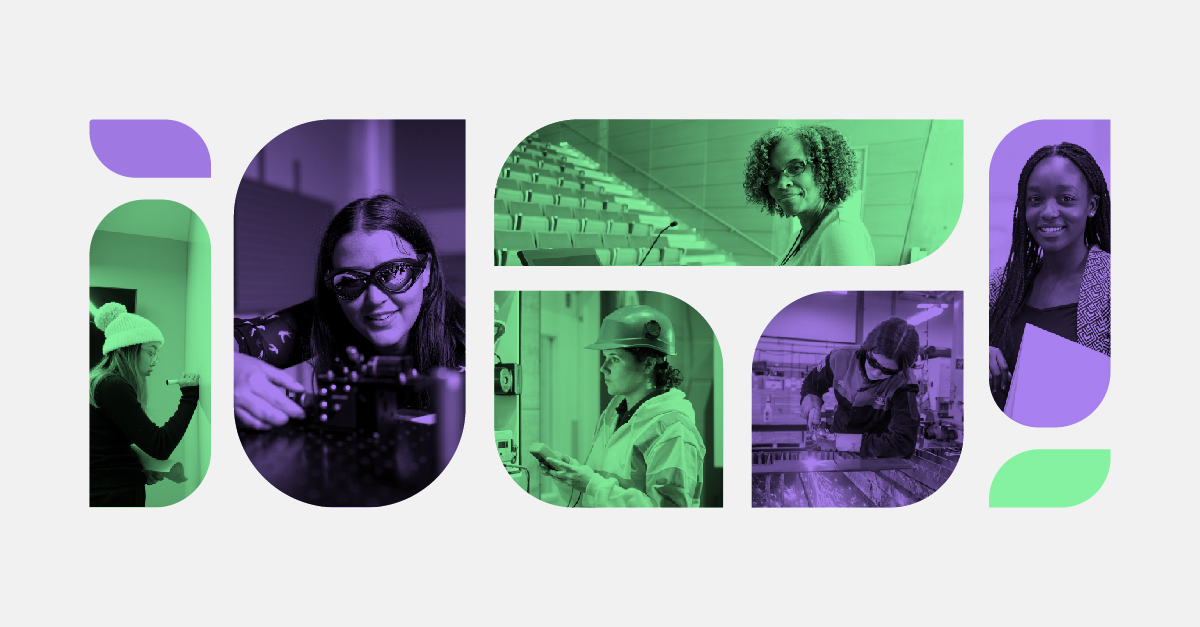Canada has undoubtedly made significant strides in advancing gender equality, yet the journey towards full parity remains ongoing. Access to and representation in post-secondary education is critical here. Alongside global efforts to empower girls and women, Canadian colleges and institutes are at the forefront of cultivating inclusive learning environments, encouraging women’s entrepreneurship and supporting women in Canada in non-traditional fields.
As we commemorate International Women’s Day, let’s explore some data to understand our progress and inspire the work yet to be done!
Celebrating a Decades-Long Trend in Female Enrolment and Graduation Rates
In the early 1990s, a significant shift occurred in Canada as women started earning more degrees than men. Since then, female graduation rates in Canadian colleges and institutes have consistently remained above or around half, marking a lasting and positive trend (Statistics Canada, 2022). The most recent data from 2021/22 reveals women represent 55% of college and institute enrolment and nearly 60% of graduates across various disciplines.
So, we achieved total equality? Not quite.
Despite this trend, men continue to dominate the high-paying, sought-after STEM fields, such as mathematics, computer and information sciences, engineering, and related technologies. And, while 34% of Canadians with a STEM degree are women, they only constitute 23% of Canadians working in science and technology roles (Statistics Canada, 2019). This persistent gender gap underscores the need for targeted interventions that bolster women’s participation and success in these critical areas of study and employment.
Empowering Women on Campus
Colleges and institutes have launched various initiatives to address current statistics and advance women’s empowerment on multiple fronts. For example:
- Saskatchewan Polytechnic, Northern Alberta Institute of Technology, British Columbia Institute of Technology, Nova Scotia Community College, Mohawk College, George Brown College and many others, champion programs to enhance female representation in trades and technology vocations. These initiatives provide women with the requisite training and backing to thrive in traditionally male-dominated sectors.
- Seneca College, in partnership with College of the Rockies and NorQuest College, offers a Herizons program that breaks down gender barriers to empower women in their careers by providing women-focused support, mentorship, and networking opportunities to empower women in various aspects of their professional lives.
- Sheridan College, St. Clair College, Fanshawe College and Durham College have come together to spearhead initiatives focused on elevating awareness and providing opportunities for women to explore career education, networking, and apprenticeships within the Red Seal skilled trades.
- Dawson College has several awards and scholarships to recognize its female students’ outstanding achievements and contributions.
- Collège Boréal has created a training program entitled Mining Potential to promote the presence of young people, women and newcomers to Canada in the mining sector.
- Bow Valley College’s Centre for Entertainment Arts proudly displays a Wonder Woman statue, acknowledging that more women than men are enrolled in the college’s game development program, and that a statue representing female empowerment, fierceness and determination served as a fitting tribute.
- Cambrian College’s Women’s Resource Centre offers its students various services, including seminars and workshops that examine women’s safety, health and wellness, financial and legal issues, substance abuse, and sexuality.
Initiating Change from the Top Down
Beyond enrolment rates, women are increasingly assuming leadership roles within Canadian colleges and institutes, driving innovation, fostering inclusivity, and shaping the future of higher education. Approximately 40% of CICan’s member presidents are women. Yet, the question arises: how can we surpass the 50% mark?
Initiatives like CICan’s 50 – 30 Challenge Project are making notable headway. Through our two Knowledge Mobilization and Dissemination Centres and five regional hubs, we provide comprehensive resources and tools to empower participants throughout their equity, diversity, and inclusion journeys. At CICan, initiatives like this have contributed to a management team of 68% women, and two consecutive female CEOs, underscoring our steadfast commitment to gender diversity and equitable representation across all decision-making levels.
Thinking Beyond Enrolment Rates
While we celebrate the progress achieved in post-secondary education, it’s imperative to recognize that our journey towards true gender equality is far from complete. Merely focusing on enrolment rates does not provide the full picture. We must also consider attainment rates and dive deeper into the nuanced challenges women face in fields where gender imbalances persist. By prioritizing empowerment, creating equal opportunities and challenging biases and stereotypes, we can shape a more inclusive future for everyone.

